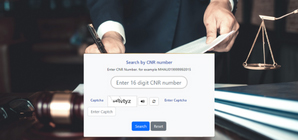 Personal loan - have done ecs mandate
Personal loan - have done ecs mandate
8 months ago
I have a personal loan of 2 lakh 20.75% interest and have done ecs mandate.
I have currently no job so i am not being able to pay their emi's. So can they file case against me and how much i have to pay in the court for bail.. I am from Uttar Pradesh Varanasi.
Once the EMI against a loan is not repaid for consecutive 3 times by the borrower for any reason whatsoever, it is treated by Bank as NPA. Accordingly, Bank sends notice to Borrower asking him/her for repayment of the entire dues lying against your loan offering suitable terms. In the absence of any response from the Borrower, Bank started the routine process of action prescribed under relevant laws for recovery of debt lying outstanding against the Borrower and the Guarantor. You can make a prayer to the Bank for some more time to settle the dues but cannot escape yourself from your liability of repayment of your loans for any reason whatsoever. Moreover, legal actions may also be taken against you that includes filing a civil suit in court or initiating criminal proceedings against you. So, to make yourself debt free, you have to repay the entire outstanding amount including interest/penal interest lying unpaid against you.
In India, lenders do have the right to take legal action if a borrower defaults on loan payments. The specific actions they can take might include:
Legal Notice: Typically, when a borrower defaults on loan payments, the lender might issue a legal notice demanding payment. This is often the first step in the process.
Filing a Lawsuit: If the borrower does not respond to the legal notice and does not make the payments, the lender can file a civil lawsuit against the borrower to recover the outstanding amount.
Repossession of Collateral: Depending on the type of loan and the terms, if the loan is secured by collateral (like property or assets), the lender might have the right to repossess the collateral. If the lender decides to file a lawsuit against you for loan default, you might receive a legal summons.
If the case progresses and you are found liable for the debt, the court might issue orders for repayment.
The bail amount, if applicable, would depend on the specific circumstances of the case, and a court would decide it based on factors such as the outstanding debt and other relevant details.
Thanks
A.Dear Sir,
Under the following amended provision of law ECS is equivalent to cheque bounce as such they can file cheque bounce case against you.
Section 25 in The Payment and Settlement Systems Act, 2007
25 Dishonour of Electronic Funds Transfer for insufficiency, etc., of funds in the account.
(1) Where an electronic funds transfer initiated by a person from an account maintained by him cannot be executed on the ground that the amount of money standing to the credit of that account is insufficient to honour the transfer instruction or that it exceeds the amount arranged to be paid from that account by an agreement made with a bank, such person shall be deemed to have committed an offence and shall, without prejudice to any other provisions of this Act, be punished with imprisonment for a term which may be extended to two years, or with fine which may extend to twice the amount of the electronic funds transfer, or with both: Provided that nothing contained in this section shall apply unless
(a) the electronic funds transfer was initiated for payment of any amount of money to another person for the discharge, in whole or in part, of any debt on other liability;
(b) the electronic funds transfer was initiated in accordance with the relevant procedural guidelines issued by the system provider;
(c) the beneficiary makes a demand for the payment of the said amount of money by giving a notice in writing to the person initiating the electronic funds transfer within thirty days of the receipt of information by him from the bank concerned regarding the dishonour of the electronic funds transfer; and
(d) the person initiating the electronic funds transfer fails to make the payment of the said money to the beneficiary within fifteen days of the receipt of the said notice.
(2) It shall be presumed, unless the contrary is proved, that the electronic funds transfer was initiated for the discharge, in whole or in part, of any debt or other liability.
(3) It shall not be a defence in a prosecution for an offence under sub-section (1) that the person, who initiated the electronic funds transfer through an instruction, authorization, order or agreement, did not have reason to believe at the time of such instruction, authorization, order or agreement that the credit of his account is insufficient to effect the electronic funds transfer.
(4) The Court shall, in respect of every proceeding under this section, on production of a communication from the bank denoting the dishonour of electronic funds transfer, presume the fact of dishonour of such electronic funds transfer, unless and until such fact is disproved.
(5) The provisions of Chapter XVII of the Negotiable Instruments Act, 1881 (26 of 1881) shall apply to the dishonour of electronic funds transfer to the extent the circumstances admit. Explanation. For the purpose of this section, debt or other liability means a legally enforceable debt or other liability, as the case may be.




























